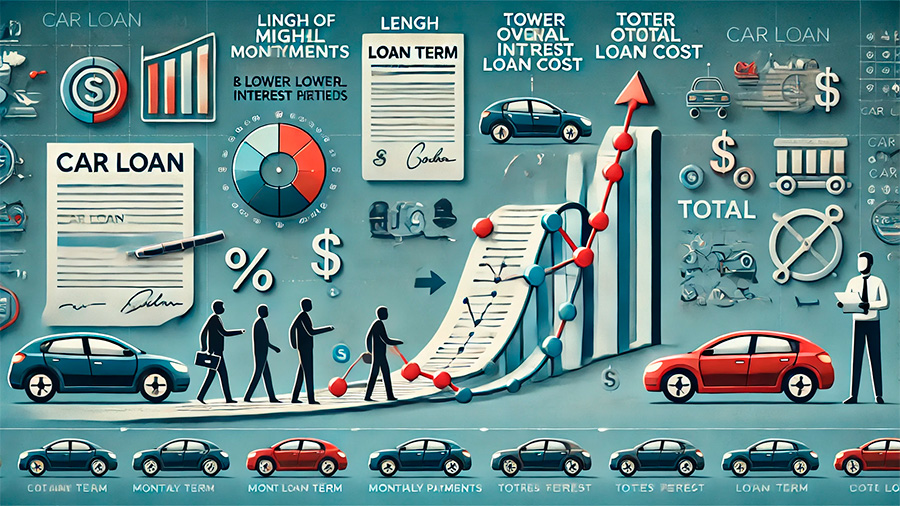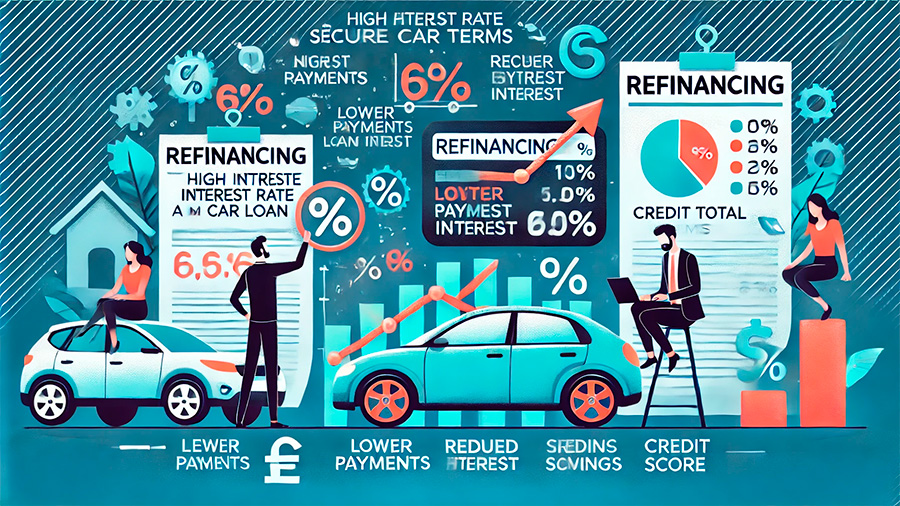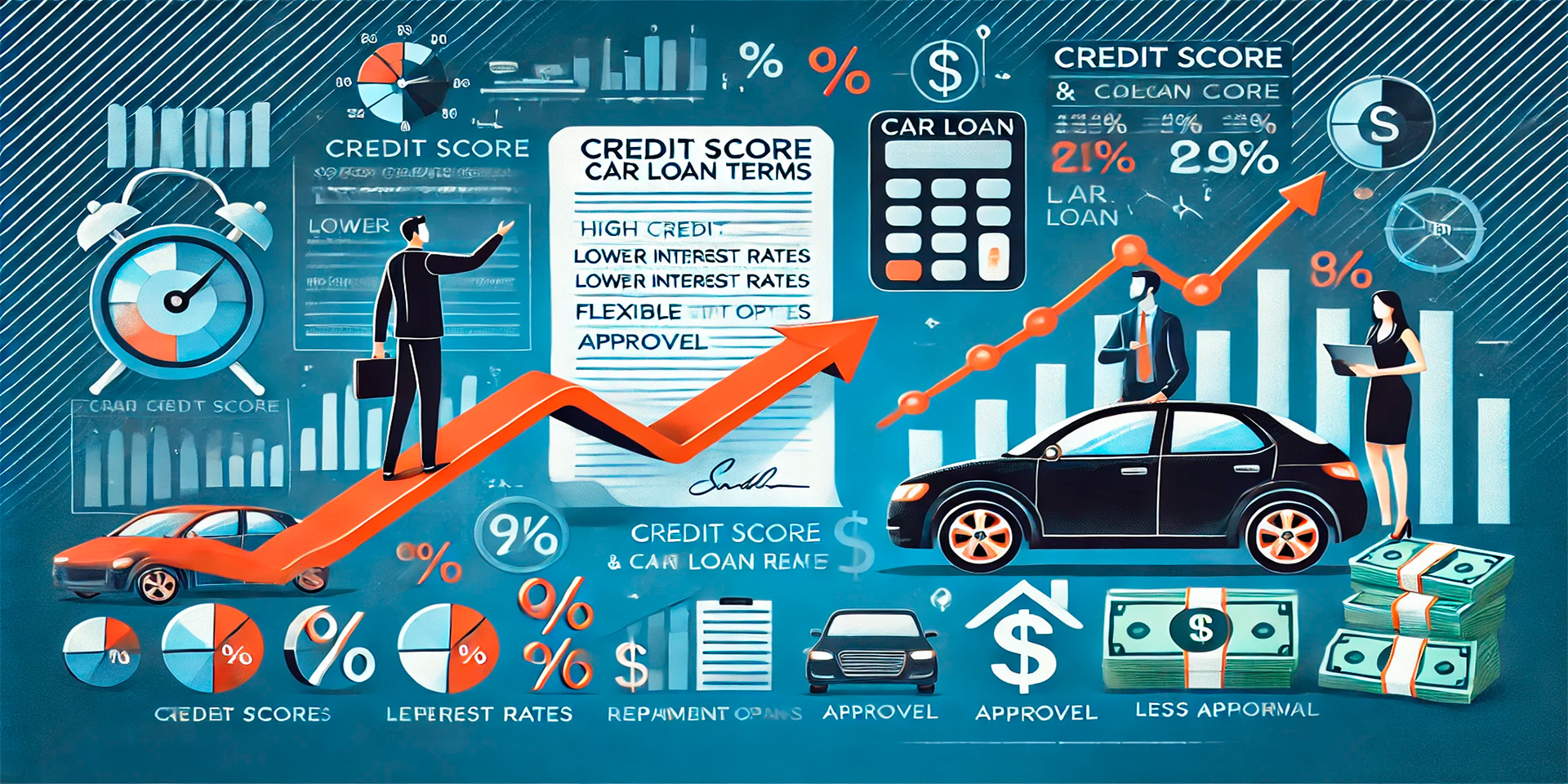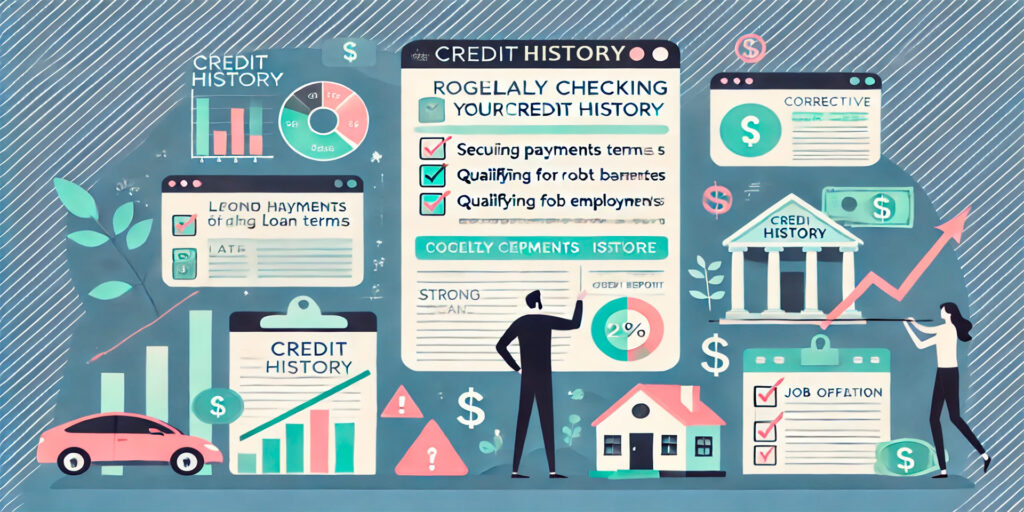When it comes to financing a car, your credit score plays a crucial role in determining the terms of your loan. Car loans allow you to purchase a vehicle without paying the full price upfront, but the interest rate and loan conditions you receive will depend largely on your credit profile. The higher your credit score, the more likely you are to secure a loan with favorable terms, such as lower interest rates and flexible repayment options. Conversely, a lower credit score may result in higher interest rates, increasing the total cost of your loan over time.
Understanding how your credit score influences car loans and learning strategies to improve your loan terms can help you save money and make more informed decisions about your vehicle financing. This guide will explain how car loans work, the relationship between credit scores and loan terms, and how to secure the best possible deal when financing a car.
How Your Credit Score Impacts Car Loan Terms
Your credit score is a numerical representation of your creditworthiness, and lenders use it to assess the risk of lending to you. When you apply for a car loan, lenders review your credit score to determine the interest rate, loan amount, and repayment terms they’re willing to offer. A high credit score indicates that you’ve managed credit responsibly, which makes lenders more confident in offering you better terms.
For borrowers with excellent credit, car loans often come with lower interest rates, meaning you’ll pay less in interest over the life of the loan. This not only reduces your monthly payments but also lowers the overall cost of financing the vehicle. On the other hand, if you have a lower credit score, lenders may charge higher interest rates to compensate for the perceived risk. This can significantly increase your monthly payments and the total cost of the loan.
Improving Your Credit Score to Get Better Car Loan Terms
If your credit score isn’t as high as you’d like, there are steps you can take to improve it before applying for a car loan. Raising your credit score can help you qualify for better loan terms, potentially saving you hundreds or even thousands of dollars over the life of the loan.
Start by reviewing your credit report to ensure there are no errors or inaccuracies that could be dragging down your score. If you find any mistakes, dispute them with the credit bureau to have them corrected. Additionally, focus on paying down high-interest debt, especially credit card balances, as reducing your credit utilization ratio can give your score a boost.
Consistently making on-time payments is another key factor in improving your credit score. Set up automatic payments or reminders to ensure that all bills are paid on time. Over time, these positive financial behaviors will raise your credit score, making you eligible for better car loan offers.
Comparing Loan Offers to Find the Best Deal
When financing a car, it’s important to shop around and compare loan offers from different lenders. Car loans can vary significantly in terms of interest rates, fees, and repayment terms, so taking the time to explore multiple options can help you find the best deal for your financial situation.
Consider getting pre-approved for a car loan before you start shopping for a vehicle. Pre-approval allows you to know exactly how much you can borrow and at what interest rate, which can give you a stronger negotiating position with car dealerships. It also helps you avoid last-minute financing decisions that may not offer the best terms.
In addition to traditional banks and credit unions, many online lenders offer competitive car loan rates. Comparing offers from these different sources can help you secure the best possible interest rate and loan terms based on your credit score.

Understanding Loan Terms and Their Impact
When evaluating car loan offers, it’s essential to understand how the length of the loan term and the interest rate affect your monthly payments and the total cost of the loan. Shorter loan terms typically come with lower interest rates but higher monthly payments, while longer terms spread out the payments, resulting in lower monthly costs but higher overall interest charges.
For example, a five-year loan may offer lower monthly payments, but you’ll pay more in interest over the life of the loan compared to a three-year loan with higher monthly payments but lower interest costs. When choosing a loan term, consider your budget and how much you can comfortably afford each month while also factoring in the long-term savings that come with shorter loan terms and lower interest rates.
The Role of Down Payments in Securing Better Loan Terms
Making a larger down payment on your car can also help you secure better loan terms. A substantial down payment reduces the amount you need to borrow, which lowers the lender’s risk. As a result, you may qualify for a lower interest rate, reducing the overall cost of the loan.
Additionally, a larger down payment means you’ll have more equity in the car from the start, which can prevent you from becoming “upside down” on the loan, where you owe more than the car is worth. This can provide more financial security in the event that you need to sell or trade in the vehicle before the loan is fully repaid.

Refinancing Your Car Loan for Better Terms
If you’ve already taken out a car loan but find yourself paying a high interest rate due to a lower credit score at the time, refinancing could be a solution. Refinancing allows you to replace your current loan with a new one that has better terms, such as a lower interest rate or a shorter loan term.
Refinancing is particularly beneficial if your credit score has improved since you first secured the loan or if market interest rates have dropped. By refinancing, you can lower your monthly payments or reduce the total interest paid over the life of the loan, helping you save money in the long run.
Conclusion
Your credit score plays a major role in determining the terms of your car loan, influencing both the interest rate and the total cost of financing your vehicle. By improving your credit score, comparing loan offers, and understanding how loan terms impact your payments, you can secure better rates and save money over time. Whether you’re buying a new car or looking to refinance an existing loan, taking the time to understand how credit affects car loans will help you make informed decisions that benefit your financial future.









